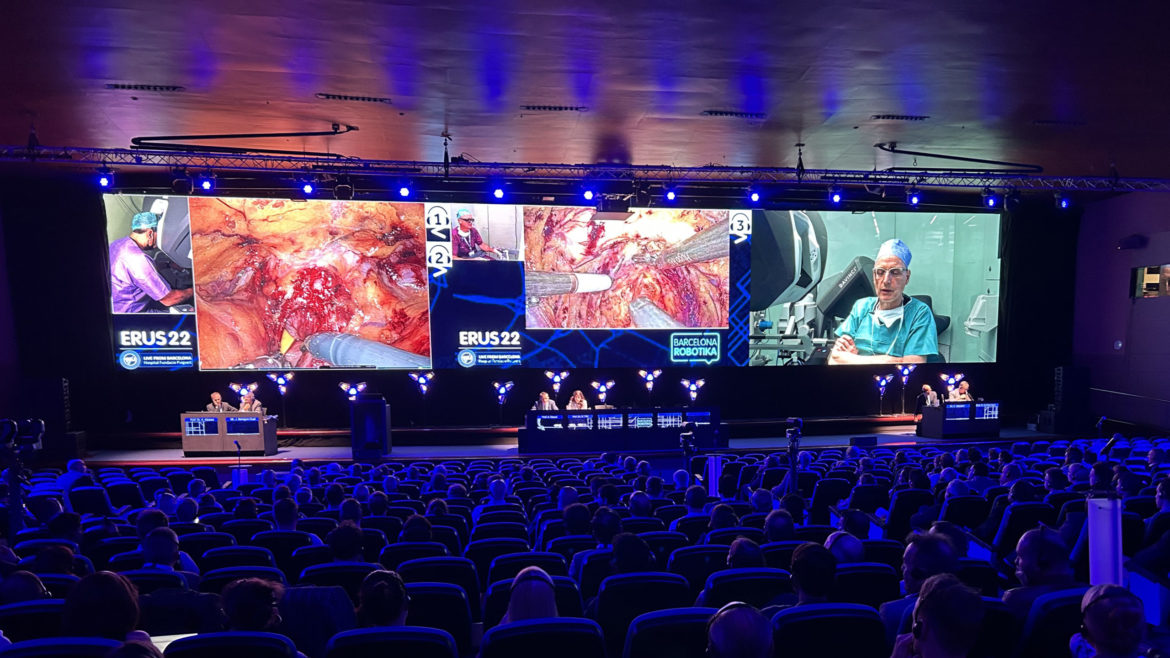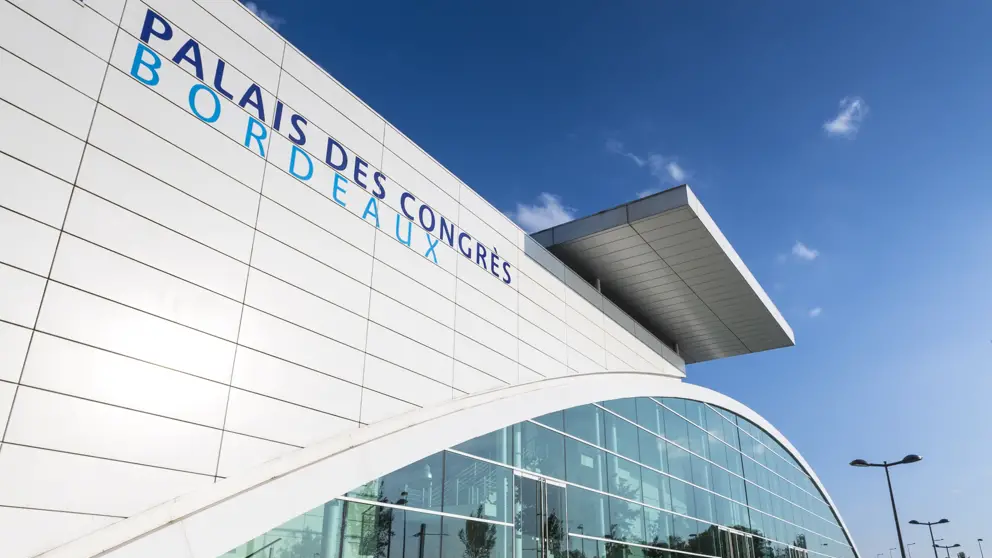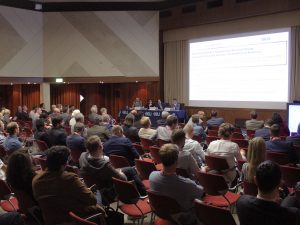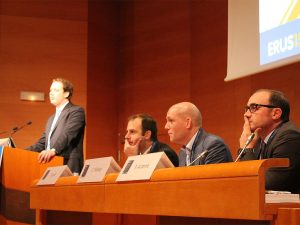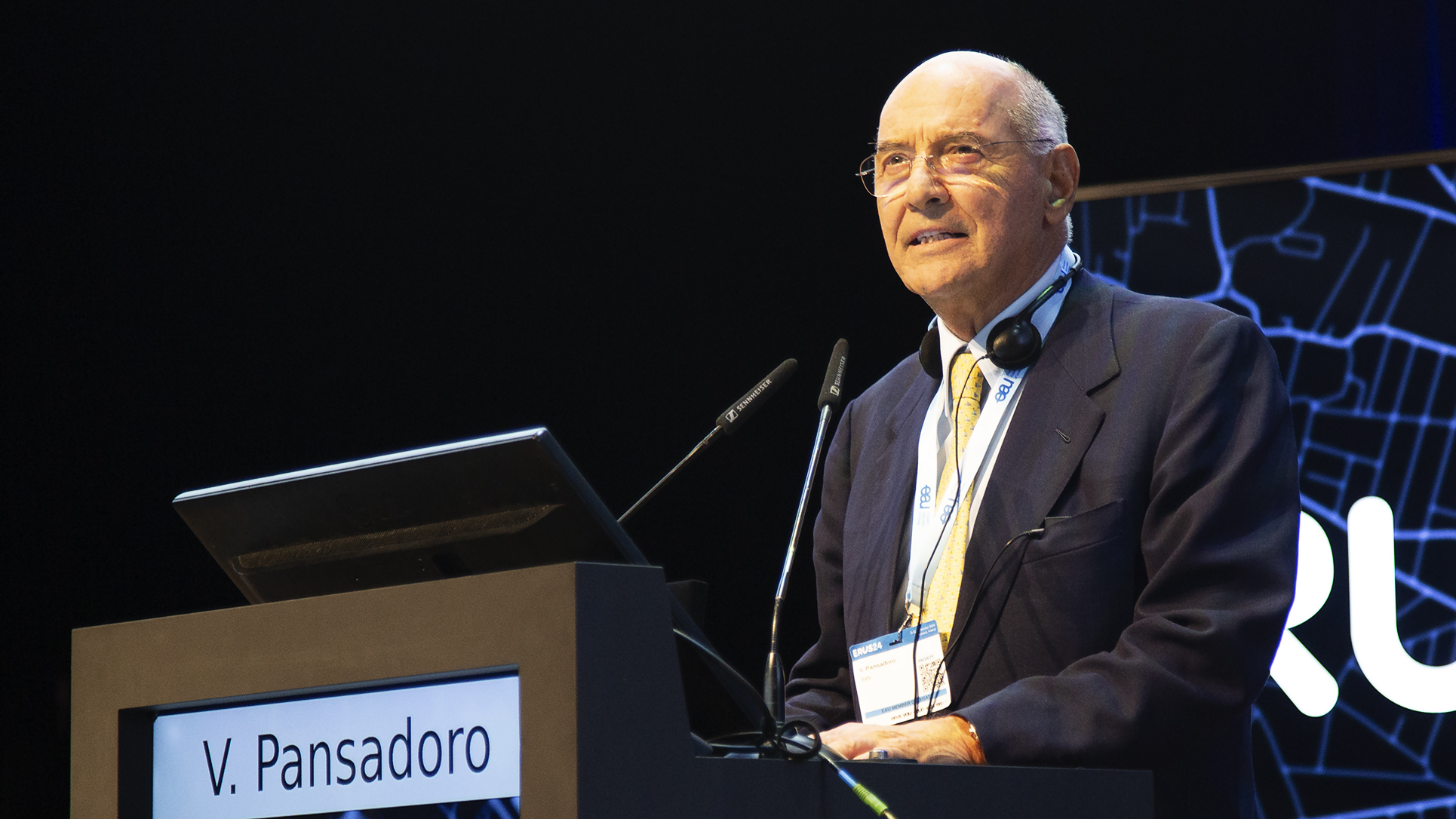ERUS22 got off to a good start on Wednesday morning, with over 700 participants expected over the coming three days. The 19th Meeting of the EAU Robotic Urology Section is a “home game” for Section Chairman Dr. Alberto Breda, who worked to involve six local surgical centres in a packed scientific programme.
Prof. Arnulf Stenzl, the EAU’s Adjunct Secretary General for Science (and Secretary General-Elect) congratulated Dr. Breda’s and the ERUS section’s value to the wider EAU, and with the ambitious and live surgery-focused scientific programme. Prof. Venancio Chantada-Abal welcomed the EAU and those present on behalf of the Spanish Association of Urology (AEU).
The day started with a plenary session that introduced the programme, but importantly also dealt with the clinical outcomes of the previous ERUS meeting, held with the German Robotic society in Dusseldorf one year earlier. Dr. Christian Wagner did the honours and gave an update on the various complications that some of the patients suffered, but highlighted that the oncological outcome for all Gronau patients (18) was solid, with not one positive margin detected.
Prof. Hubert John gave a presentation on the reconstructive applications for robotic surgery, specifically fistula repair. Prof. John showed examples of a range of fistulas, pointing out that so-called “high fistulas” that were more common in Western Europe had potential to be treated by robotic surgeons. There was some time for questions from the audience, particularly about some disarmingly honest surgical videos that Prof. John included in his talk.
Dr. Breda then gave a fast-paced and wide-ranging update on the huge variety of robotic surgical systems that are currently seeking certification, soon coming to market or already in limited use. He estimated 30-35 different systems that were under development, not counting the systems that were being developed in China and less visible to European audiences.
Dr. Breda sketched some broad categories, dividing the systems according to the characteristics of a closed, semi-closed or open console, and with loop, pistol or laparoscopic-like handles for the operator. He shared the Fundacio Puigvert’s first experiences with the Medtronic Hugo RAS system, lauding the Storz scopes’ quality. Other systems that were being used in limited numbers were the CMR Versius (at Guy’s Hospital) and the Avatera system in Patras, Greece. Dr. Breda hoped to feature the Avatera in next year’s live surgical programme.
Live surgery
The first live surgery session of the day then started, in a “silent”, triple-screen set up. Three sets of moderators commented on three separate live procedures, with the audience using headsets to choose which case they wanted to follow.
ERUS22 will feature 38 different live procedures in eight sessions, featuring the best robotic urological surgeons using a combination of Intuitive, Medtronic, and Vivascope systems.

